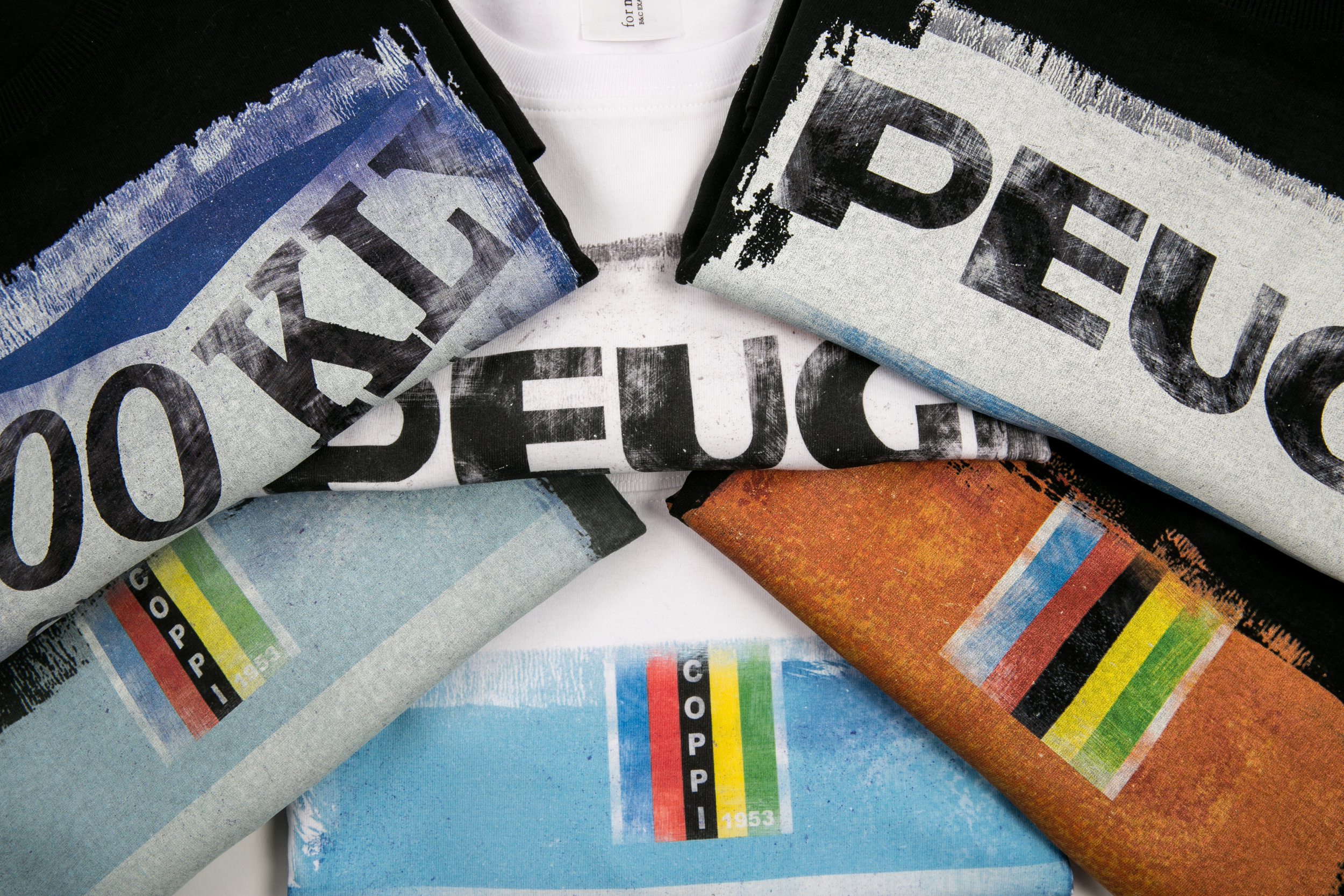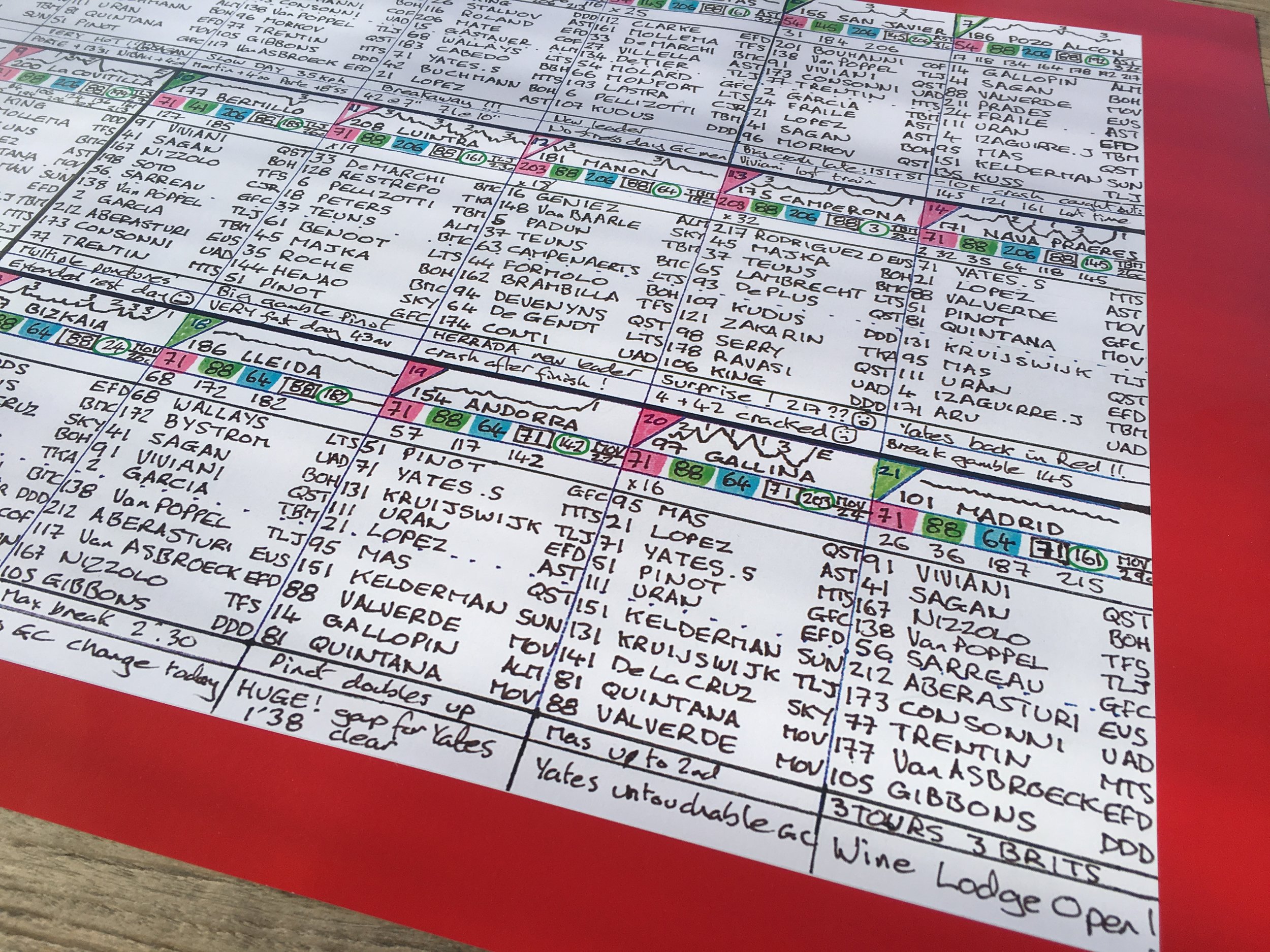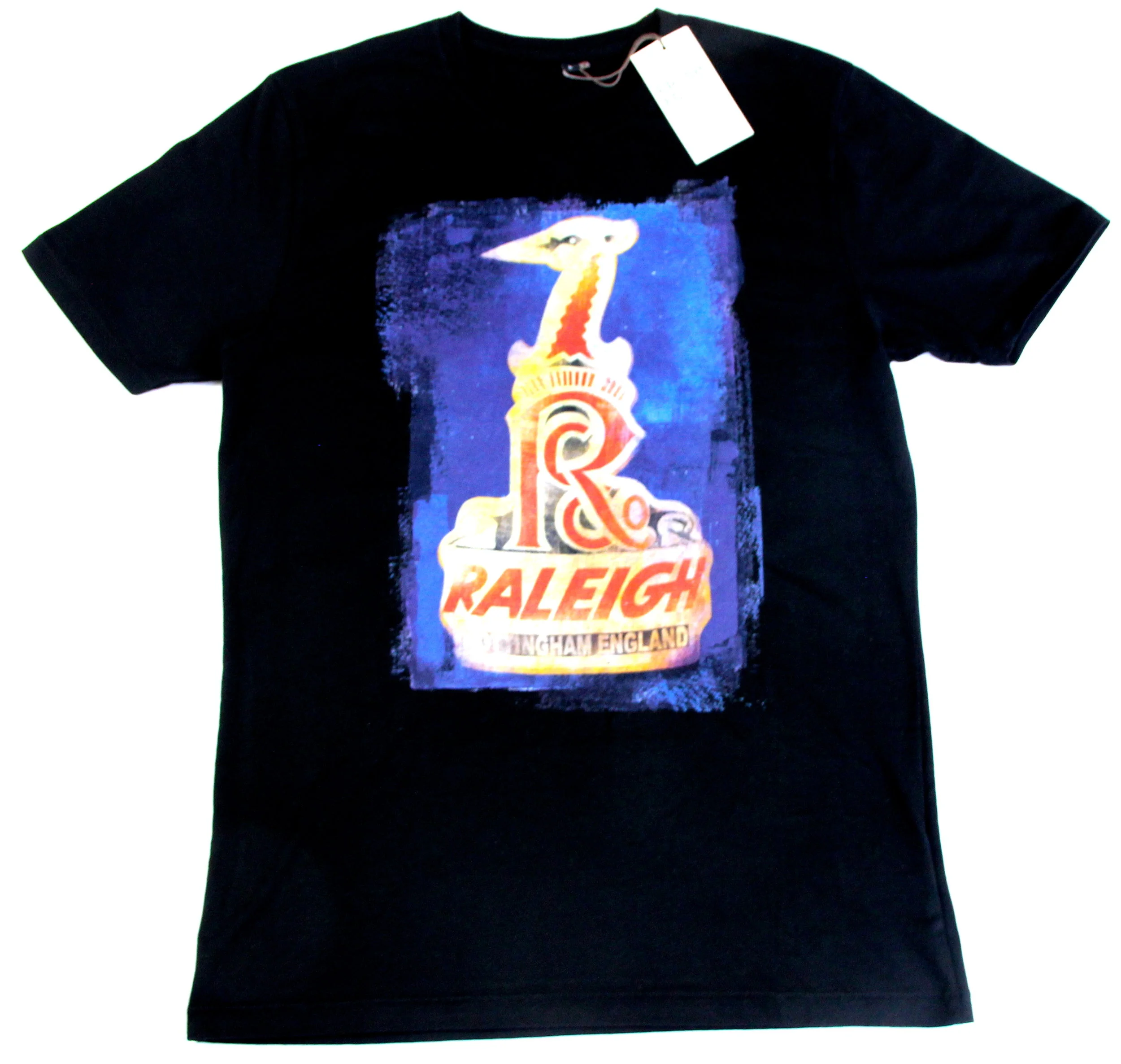What is it that makes a champion? What transcends someone from being simply a strong rider to one that has the killer instinct that means it’s their wheel, not their rival’s, that crosses the line of the track first?
Maurice Burton performing a 'hand sling' on Gary Wiggins
Maurice Burton should know: he was one of the most talented and successful riders of his generation, winning, first the Junior Sprint and the following year the 20km National Championship, as well as the club team pursuit, on the track, the first black man to do so, beating some of the most established riders of the time. He went on to become one of the few British riders to be successful on the Continent, becoming a regular fixture on the Six Day circuit in Belgium, Holland, Germany and beyond, and competed in the Commonwealth Games.
There weren’t many who could beat Maurice when it came to a one-on-one race. What’s more he did so as a mixed race kid from Catford who struggled to fit in with the white middle class establishment that ran British cycling at the time. Maurice has always wanted to win, still does. He even admits to running his son, Robbie, off the road when he was threatening to overtake him on one of their favourite hills in the Kent Alps! “I think it’s a sort of bloody mindedness I guess.”
Maurice Burton with the Youngs tourer that he found dumped in a South London garden
It was that same bloody mindedness that convinced him, as a 12-year old, that it was a good idea take a Youngs touring bike that was dumped in a front garden because his Dad refused to buy him one. He chose his secondary school because he knew they had Games sessions at the Herne Hill Velodrome. And it was the same bloody mindedness that made him decide to do all this against his Jamaican father’s wishes, a father who thought that cycling was too dangerous and there was no future in it. “I was the British Champion before he ever saw me ride.”
Maurice can remember his first ever session on the track. “I knew I could ride quite fast,” he recalls, “so I went for it with a lap to go,” but ran out of steam in the final straight of the 450m track and came second. Bill Dodds, the coach down there at the time, was watching from the stands that day and told him afterwards that he could go all the way to the Olympic Games. That was the last time he came second at Herne Hill. “I don’t remember losing there after that as a schoolboy,” he says. And he’d repeat similar victories on the road circuit at Crystal Palace on the touring bike that he’d picked up from the Forest Hill front garden. “Yes- first of all you have to have the strength, but it’s the bloody mindedness that makes you a winner.”
A framed copy of Rudyard Kipling’s poem, “If” hangs in Maurice’s office. And it’s these values, written over a century ago, that have been his guide and given him the drive and determination to succeed as a bike racer, later as a businessman, but throughout his life, as a human being. Perhaps it’s those last four lines of the third verse that have a particular resonance:
If you can force your heart and nerve and sinew
To serve your turn long after they have gone,
And so hold on when there is nothing left in you
Except the Will which says to them: ‘Hold on!’
Maurice's first taste of national success in the Junior Sprint Championship at the age of 17
His first taste of National success came when he won the Junior Sprint title in 1973 at the age of 17. The following year, and now 18 years old, he really came to prominence in the senior 20km scratch title at Leicester when he beat the reigning Commonwealth Champion, Steve Heffernan and the Australian, Murray Hall, the silver medalist, to get first place. Maurice got his first taste of victory in a senior National championship race that day, but it was also the first time he witnessed an uglier side of the British cycling world. People booed as he stood on the podium. Some say that they did so purely because they were unhappy to see their old favourites fail on the day. But would they have behaved the same way if this was a promising young white boy coming up through the ranks?
In those days there was little or no sponsorship of individuals on the amateur circuit, even for the National team. Forget the generous funding, high-end equipment and tailored training programmes of the modern world. Maurice remembers racing on the Olympic track in Munich against the best in the world on a bike with a completely worn chain and badly fitted tyres that flew off in the middle of the race! He’d look across enviously at his Belgian rivals whose mechanics knew what they were doing.
Despite consistently beating the best, Maurice was overlooked for the Olympic squad. And further insults followed when the Federation refused him permission to wear the National team colours when he was invited to race in the Caribbean. His reaction? “I’ll just wear my National Champion’s jersey, then.”
It was make or break time in his career. He was getting sore knuckles from banging on the cycling establishment’s door back home. Was it a career as an electrician or as a bike racer that he wanted? He could feel the call of the Six Day Races in Belgium beckon, so decided to go to Ghent on his two-week annual vacation, with just a few quid in his pocket. He knew he could make money there - he’d already won £56 in a one day race in Paddington – more than what an apprentice electrician could earn in a couple of weeks! If he was still quids up at the end, he’d stay. “I lived there for 10 years!” said Maurice, proudly.
Jan Derksen was the go-between between the race organisers and the riders in those days. There was a core of about 15 star riders with the likes of Eddy Merckx, but he’d have to find 12 two-man teams for each Six Day race from a pool of about 250 riders on his books. He’d tell them to always keep their bags packed as they could get a last minute call up if someone dropped out at the last moment. “You had to stay in good condition the whole time,” remembers Maurice. But there was money to be made: you could earn the equivalent of £6,000 - £8,000 for a six-day race and that winter Maurice rode in 16 out of 18 events that season.
He also started to race on the road where it would cost about 20p to enter a race. “You could race nearly every day of the summer within an hour away of Ghent. We used to ride to the start. There were no changing rooms so you would just go and knock on someone’s door! I could finish most races in the top 10.” Accommodation was cheap, about £5 a month. He and Australian friend Peter Versleydonck stayed in a place known as ‘The Butcher’s Shop’. Alan Piper slept in the shop window, sticking up old newspapers for a bit of privacy. “With 80 or so races between May and August I had money in the bank. I could do it, you know?”
In this way Maurice became a respected professional in the heartland of Belgian cycling along with the likes of Gary Wiggins, father of Sir Bradley. Soon he was racing all over Europe, even learning how to drive a car on a road trip between races from Milan to Berlin. And he could hold his own against nearly any rider that challenged him. “Danny Clark - he was the only guy I never got the better of,” and, to prove his point, he shows us an incredible You Tube video of the Australian rider smashing a handicap race.
At the age of 28, Maurice was a battle-hardened track racer whose reputation had grown to the extent that he was a go-to man for some of the most high profile events around the world. What’s more, he was maturing and developing into one of the hardest guys to beat on the circuit. The future looked promising – he was on the cusp of becoming one of the greatest. Then in 1984 he was invited to a Six Day in Buenos Aires where he suffered a horrific crash which smashed up a leg so badly that it had to be put back together with metal inserts. His world was turned upside down and it looked like his career was over…
Find out what happened to Maurice Burton next week!













































